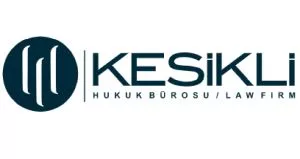- within Corporate/Commercial Law topic(s)
- in United States
- within Strategy, Government and Public Sector topic(s)
1. Strategic Importance of Premium Capital Increases in Start-Up Companies
The issuance of shares at a premium plays a key role in financing high-growth, early-stage companies, particularly technology-based ventures. Start-ups are generally incorporated with minimum share capital and subsequently carry out premium capital increases in later investment rounds, as their enterprise valuation increases. Through this method, the company not only raises new funds but also enhances its financial structure and credibility.
Although premium issuance is technically possible at the incorporation stage, in practice it is most frequently employed during subsequent financing rounds, when there is a substantial difference between the company's fair market value and its nominal capital. If new shares were to be issued only at par value under such circumstances, this could result in unjust enrichment of new investors and dilution of existing shareholders' interests—thus undermining both fairness and financing efficiency.
Premium capital increases allow a company to issue shares closer to their actual market value. The portion exceeding nominal value is recorded as a share premium (or issuance premium) under capital reserves, and can then be utilized for growth-oriented objectives—such as product development, operational expansion, or strategic investments—without affecting the company's shareholding balance or founder control.
Importantly, investors participating in premium capital increases often seek more than short-term returns. Their active involvement, financially and strategically, contributes to the company's success. Moreover, by entering at a lower valuation in early rounds, such investors aim to realize capital gains through value appreciation in the medium term. Their motivations typically include:
- Anticipated high returns based on innovative technologies or scalable business models;
- Preference for equity participation over debt financing, enabling direct influence in governance and decision-making;
- The opportunity to participate early, secure equity at favorable valuations, and benefit proportionally from future growth.
Ultimately, premium capital increases strike a balance between capital needs and ownership retention. This structure creates a sustainable foundation for "win-win" investor-founder relationships and is widely recognized as a cornerstone of venture capital investment in the modern entrepreneurial ecosystem.
2. Definition and Legal Nature of Share Premiums
Although the concept of share premium is not explicitly defined under the Turkish Commercial Code No. 6102 ("TCC"), Article 347 prohibits the issuance of shares below their nominal value and implies that the issuance of shares above nominal value (i.e., at a premium) is permissible with a provision in the articles of association or a general assembly resolution.
In practice, share premiums arise when the company's fair market value exceeds its nominal capital. Issuing new shares at a value higher than their nominal amount serves as a strategic tool, especially for companies seeking to raise funds while preserving shareholder balance and reflecting the company's actual value. The amount exceeding the nominal value constitutes the "premium."
Premium share issuances are permitted under both the fixed and authorized capital systems. They are commonly utilized in capital increases involving existing shareholders or external investors. Share premiums are classified as capital reserves under TCC Article 519/2(a) and are not added to the company's nominal capital. Rather, they strengthen the equity structure while preserving shareholders' relative rights.
According to TCC, the portion exceeding nominal value must be fully paid in cash before registration. These amounts, once paid, form part of the company's legal reserves and may only be used in limited circumstances (e.g., to cover losses, maintain operations during economic hardship, or prevent layoffs). However, if such reserves exceed 50% of the nominal capital, the excess portion may be distributed or used freely.
In light of the Turkish Revenue Administration's private ruling dated 20.10.2015 (no. 62030549-125-2014/1054), premium amounts may only be distributed if the legal reserve threshold defined in the TCC has been exceeded.
3. Procedural Requirements for Premium Capital Increases
The issuance of shares at a premium follows the general capital increase procedures but entails some additional requirements:
- Corporate resolution: The issuance must be authorized either through a provision in the articles of association or by a general assembly resolution. No special quorum is required unless otherwise provided; standard majority rules under Articles 418 or 421 TCC apply.
- Cash payment obligation: While the nominal share value may be paid within 24 months following registration (Art. 344 TCC), the share premium must be fully and immediately paid in cash before registration.
- Board report: Pursuant to Article 461/2 TCC, the board of directors must prepare a detailed report explaining the rationale and calculation of the premium. This report is registered and announced, serving as a transparency mechanism.
- Authorized capital system: If the company has adopted the authorized capital system, the board must have been granted authority under Article 480 TCC to issue shares at a premium. Procedures under Article 460/2 TCC are then followed.
- Capital Markets Law: For publicly held companies, Capital Markets Law Article 12/1 requires full cash payment. The Capital Markets Board may also mandate that share subscription rights be exercised at a premium if market or book value exceeds nominal value.
4. Practical Advantages of Premium Share Issuances
Premium capital increases offer multiple advantages when a company's fair value significantly exceeds its nominal capital:
Avoidance of Dilution: Issuing shares at a premium allows the company to raise capital at its real value while minimizing dilution of existing shareholders. If new shares are issued only at nominal value in such cases, early shareholders would suffer an unjust loss in value. Legal doctrine and case law emphasize that issuing shares at par value under such circumstances may violate the principles of equal treatment and good faith, potentially jeopardizing the validity of the capital increase. Therefore, share premium issuance becomes a necessary tool for fairness and legal certainty.
Example: A company with a nominal capital of TRY 100,000 (100,000 shares at TRY 1) grows its equity to TRY 1,000,000 through asset appreciation and retained earnings. Issuing 100,000 new shares at par value (TRY 1) would yield only TRY 100,000 in new capital, increasing total equity to TRY 1,100,000. The share count becomes 200,000, so the per-share equity drops from TRY 10 to TRY 5.5. This results in significant dilution of existing shareholders' equity value. Instead, issuing the new shares at TRY 10 (TRY 1 nominal + TRY 9 premium) would yield TRY 1,000,000 in capital, preserving the per-share value at TRY 10 and maintaining equity balance.
In addition, the portion of the consideration received from new or existing shareholders with the capital increase through premium share issuance exceeding the nominal value does not create a change in the rights attached to the capital (e.g. voting rights, dividend rate) since it is excluded from the basic capital. In this respect, premium share issuance makes it possible to maintain the shareholding structure in parallel with the increase in the value of the company.
Reflecting True Company Value: The premium paid by investors is recorded in the capital reserves and adds to the company's equity without affecting nominal capital. This strengthens the balance sheet and ensures that the equity reported reflects the company's true value.
Financial Flexibility: Share premiums can be used for various purposes such as R&D, operational expansion, or loan repayment. As they are not part of the nominal capital, their use is not restricted by capital maintenance rules, subject to the limitations set out in Article 519/2(a) TCC.
Cost and Tax Efficiency: Since trade registry fees are calculated based on the nominal capital increase, issuing shares at a premium reduces administrative costs. Also, premiums are not treated as corporate income and are thus not taxed unless distributed as dividends.
The content of this article is intended to provide a general guide to the subject matter. Specialist advice should be sought about your specific circumstances.


